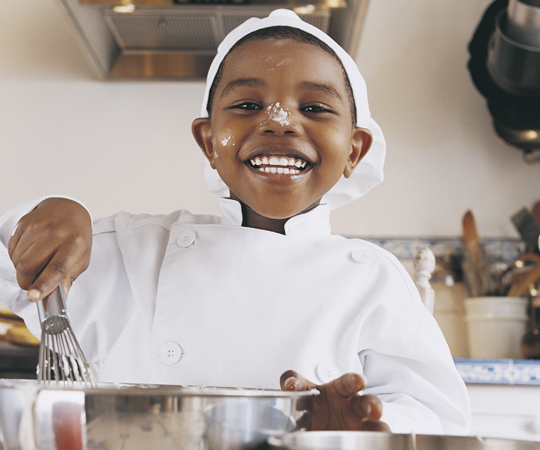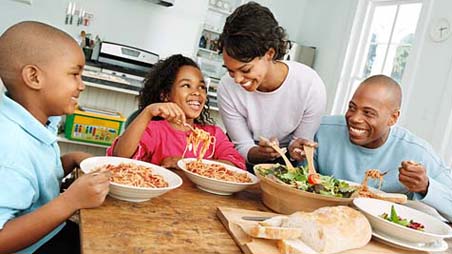Kid Chefs – 6 Tips to Getting Children Involved in the Kitchen & Eating Right | Chenell Griffiths

Kids in the Kitchen!
Getting kids involved in the kitchen is one great way in which parents can encourage their kids to eat right; let them be Kid Chefs! Kids that are involved in the meal preparation process feel encouraged to eat the meal they have helped to cooked.
However, do bear in mind that parents need to lead by example; and as such, in an effort to encourage children to eat right, parents must also eat right. Thus, meals that are prepared together (parents and their kids) should be had together. Without further ado, here are 6 tips for parents on how to get their kids involved in the kitchen, and eventually eating right:
6 Tips To Encourage Your Kid Chefs
- Ensure that you are never in a rush when cooking with children. Always be patient; you do not want them to associate meal preparation with the feeling of anxiety.
- Demonstrate kitchen safety measures and good hygiene practices. See Kitchen Safety Rules for Kids.
- Children ages 3-5 can help with
- mashing, mixing, stirring, blending,
- cracking eggs,
- using a butter knife to cut soft foods and
- washing ingredients.
In addition, children in this age group can also help with measuring and pouring. Measuring and pouring is a great time to incorporate practicing to count.
4. Children ages 6-12 can help with:
- cooking simple starches such as rice and pasta
- cutting and peeling vegetables
- separating eggs
- chopping, dicing and mincing of ingredients and also
- preparing easy breakfast items such as scrambles eggs, cereal with milk and oats porridge.
5. Have children help with age appropriate cleanup:
- children ages 3-5 can help by wiping up spills on the counter; likewise,
- children ages 6-12 can help with the washing of dishes and utensils and sweeping.
6. Finally, let your kid chefs know that they have done a good job, and thank them for helping you in the kitchen.
Though cooking with your children can get quite messy, above all, it is important to focus on the bonding experience as well as the fact that you are positively impacting their health, both physically and mentally, for the rest of their lives.
Written by Chenell Griffiths, Nutrition Educator
Learn More


